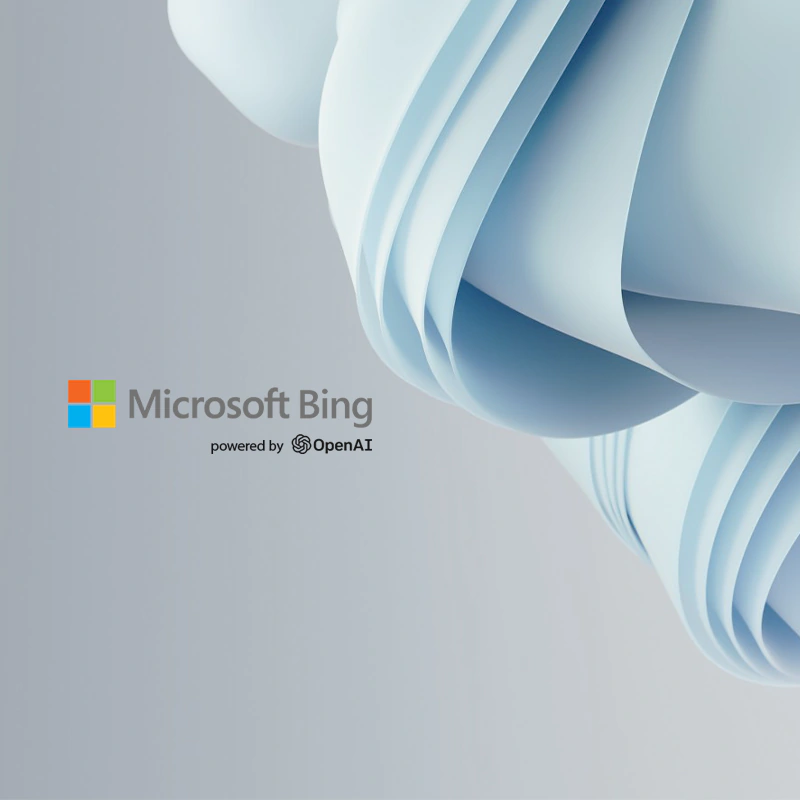
Microsoft is one of the investors at OpenAI, and it's making use of that fact to benefit itself even more.
OpenAI is known as the creator of AI products like DALL·E, and the DALL·E 2, and then the GPT-2, the GPT-3, as well as Point·E, among many others.
Microsoft, which poured $1 billion to help fund the company, wants to use one of OpenAI's products to enhance its own product.
This time, the tech titan wants to integrate OpenAI's ChatGPT to make Bing smarter.
Using the chatbot, which is able to give humanlike text answers, Microsoft hopes that it can eat away more of the market share owned by Google, its much bigger search rival.
Read: Microsoft Gets An Exclusive License To Use OpenAI's Controversial GPT-3 AI Model
In a blog post, Microsoft said that:
[...] Microsoft is also integrating DALL∙E 2 into its consumer apps and services starting with the newly announced Microsoft Designer app, and it will soon be integrated into Image Creator in Microsoft Bing. The rollout of DALL∙E 2 across Microsoft products and services reflects how the company’s investment in AI research is infusing AI into everything it builds, produces and delivers to help everyone boost productivity and innovation.
Microsoft is betting that the conversational and contextual replies to users’ queries can make Bing more appealing to users.
This is because with ChatGPT, the AI that empowers it can provide answers beyond links, meaning that users should be able to see better-quality answers.
Microsoft gave an example, where the toy company Mattel were asked to come up with a new Hot Wheels model car, and that they sought inspiration from DALL∙E 2.
Microsoft praised that using the tool, "designers can type in a prompt such as, 'A scale model of a classic car' and DALL∙E 2 will generate an image of a toy vintage car, perhaps silver in color and with whitewall tires."
"As a next step, the designer could erase the top of the car and then type, 'Make it a convertible' and DALL∙E 2 will update the image of the car as a convertible. The designer can keep tweaking the design, asking DALL∙E 2 to try it in pink or blue, with the soft-top on, and on and on."
With OpenAI's DALL∙E 2, the designers were able to create dozens of images, easily.
But still, ChatGPT, despite its prowess and immense ability, is controversial to the point that "better" doesn't translate to "accurate."
ChatGPT is still riddled with issues, and because of that, Microsoft is still researching into how the chatbot fits into the search engine.
This fact was even stated by OpenAI CEO Sam Altman in a tweet, in which he said that it’s "a mistake to be relying on it for anything important."
But still, if Microsoft and OpenAI can solve the issues, the AI should be much of a help.
fun creative inspiration; great! reliance for factual queries; not such a good idea.
we will work hard to improve!— Sam Altman (@sama) December 11, 2022
"The power of the models has crossed this threshold of quality and now they’re useful in more applications,” said Eric Boyd, Microsoft corporate vice president for AI Platform.
"The other trend that we’re seeing is all the product developers are thinking through and understanding the ways that they can use AI in their products for both ease of use as well as saying, ‘Oh, I can make my product work better if I use AI."
No AI technology has elicited as much excitement as systems such as DALL∙E 2 that can generate images from natural language descriptions, according to Sarah Bird, a Microsoft principal group project manager for Azure AI.
It's worth noting that Microsoft has been using DALL·E 2 to power Bing's image-generator.
It's also worth mentioning that Google employees have asked CEO Sundar Pichai about the chatbot’s threat to Google. Google has been working on similar technology in its LaMDA, or Language Model for Dialogue Applications system, but faces reputational risk from any mistakes or errors, the two sources said.
Pichai and the company’s management have since mobilized teams of researchers to respond to ChatGPT, declaring the situation a “code red” threat, the New York Times reported.
Microsoft is preparing to launch a version of its Bing search engine that uses the artificial intelligence behind ChatGPT